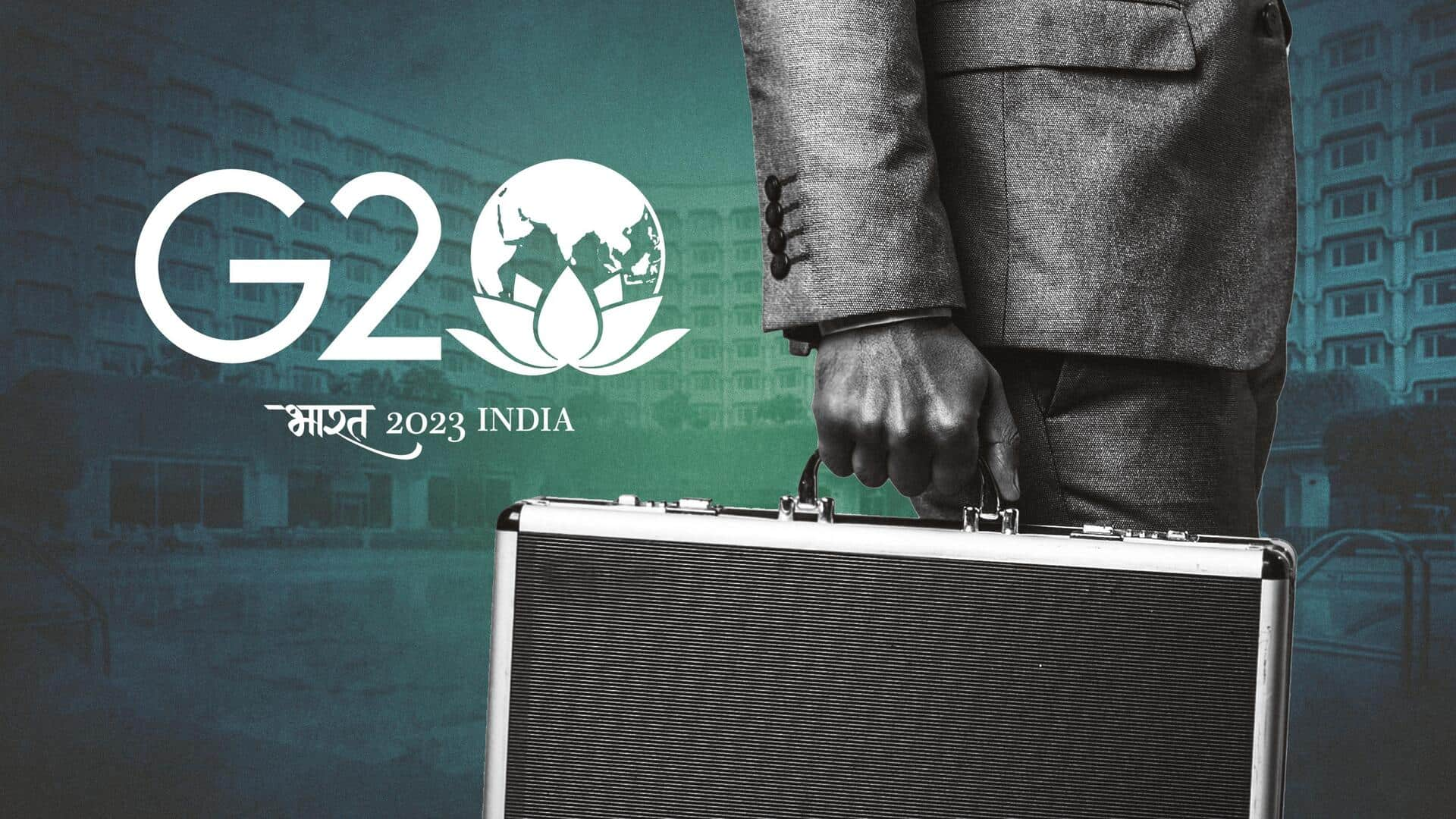
Chinese G20 delegates had not one, but 20 'suspicious' bags
What's the story
The controversy following the 12-hour-long standoff between the Chinese delegation and Indian security officials at the Taj Palace in Delhi during the G20 summit doesn't seem to have died down. A new report by The Times of India has now claimed that the Chinese delegation had not one but around 20 bags with suspicious content. Although the Indian security officials said the matter was resolved, efforts to identify the bags' contents are ongoing, the report said.
Context
Why does this story matter?
Ties between India and China have been strained for decades over border disputes. However, bilateral relations saw an all-time low in 2020, when Indian and Chinese forces clashed in Ladakh's Galwan Valley. Both countries share sentiments of mutual distrust, exacerbated by China's expansionist attitude and recent attempts to lay claim to Indian territories. In the wake of the new Chinese map row, Chinese President Xi Jinping skipped the G20 Summit and sent Premier Li Qiang instead.
Details
Unusual size of bags caught attention
The report says that the Chinese delegation had six members, of whom two or three had joined from the Chinese embassy. The delegation, led by a woman, was carrying 20 bags, which the security officials flagged as "suspicious." Although they were instructed to facilitate the passage of the "diplomatic baggage" as per the Vienna Convention's protocol, the unusual size of the bags, measuring around 1x1 meter in length and width and 10 inches thick, caught their attention.
Details
Chinese company known for supplying SIGINT gathering devices
Fearing potential espionage, the Indian security officials insisted on putting the bags under the scanner, but the Chinese side resisted it. Following this, three security personnel took turns guarding the room for 12 hours until the Chinese delegation agreed to send the bag to their embassy. The security officials are looking into whether the suitcases contained "off-the-air" type surveillance and jamming devices called SIGINT or signal intelligence gathering devices, which a Chinese electronics giant is known for supplying.
Insights
Qiang surprised many by arriving on chartered flight
The suspicion of a potential surveillance set-up was bolstered by the Chinese delegation's request for a separate and "private" Internet connection, which the hotel declined. Chinese Premier Qiang also raised eyebrows by arriving on a chartered flight instead of the usual "special aircraft" used by senior leaders. Notably, Brazilian President Luiz Inacio Lula da Silva was also staying at the Taj Palace. China has yet to issue a statement in this regard.